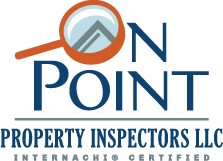Wind Mitigation Inspection – How can this save me on my homeowners insurance?
If you live in a coastal state, you’ve probably heard of Wind Mitigation Insurance. If you’re a Florida resident, especially – that peninsular state sprawling into the Atlantic and Gulf, flirting with tropical storms and hurricanes every summer and fall – almost assuredly you’re familiar. And if you’re not, you might want to reconsider the significant savings a home inspection may offer, should nature’s fury unleash.
Many property owners receive wind mitigation inspections to assess the preparedness of their homes and businesses in resisting the effects of windstorm damage or loss. Interestingly, even in Florida, wind mitigation inspections are not required by insurance companies or mortgage lenders – it’s totally optional, unlike some derivative of the four-point home inspection (which assesses the status of a property’s electrical, HVAC, and plumbing systems plus the roofing) or a more intensive roof condition inspection. So why would someone want to order an extra inspection if it isn’t 100% needed? Because it could save you money!
That’s right – SAVE YOU MONEY. Wind Mitigation Insurance is the only inspection that is almost guaranteed to result in some level of insurance discount on your insurance premium.
Here’s a rundown on why – Following an intensely active tropical storm season and resulting all-out battery on the US, a handful of insurance companies not-surprisingly went bankrupt over mounting claim and reparation costs. Officials in states like Florida and Louisiana, hard hit by strong storms like 2004’s Charley and Ivan and 2005’s Katrina and Rita, saw an exodus of insurance companies and homeowners left high and not-so dry. They knew they needed to do something to help property owners and insurance companies alike… FAST.
Their solution: Incentivizing wind mitigation inspections as a means of properly safeguarding properties in targeted areas, in the hopes that insurance companies increase their odds of insuring more secure, less damage-susceptible properties.
In 2006, Florida became the first state in the nation to mandate that insurance companies offer some reduction insurance costs if a wind mitigation inspection is sought and certified upon review by a qualified inspector (usually a board-certified contractor, architect or engineer) with the Multiple other coastal states including Lousiana, followed similar suit.
So you’re wondering – Do I just get an inspection and save on insurance? And how much could a person stand to save?
Well, that all depends on the features of your property. An inspector will evaluate the wind-mitigating characteristics of your home or business. Post-inspection, that inspector will make recommendations for any improvements or repairs the property owner could make on their home to enhance its sustainability against windstorm damage. He or she then submits a state-standard inspection report to your insurance agency. The report is viewed as a benchmark of your home’s ability to withstand storm damage, and an appropriate discount is then applied – in Florida, an average discount of 30% is typical, saving a few hundred to over $1000 annually on your insurance premium.
Every state can vary on what safety features inspectors look for. As an example, Florida looks at 8 key categories, described below:
- Roof Covering: inspectors want to know when the roof was installed and does if it meets building codes. In Florida, the code standard was updated in 2001.
- Roof Deck Attachment: inspectors will determine what type of roof decking is used and how it’s attached to the underlying structure, like if it’s nailed or stapled down. If nails are used, nail length and spacing between each will also be noted.
- Roof to Wall Attachment: the roof attachments become the focus here: are trusses attached with nails or hurricane clips? Are the wraps single or double? The more secure your roof, the better impact on your wallet!
- Roof Geometry: is your roof hip or not? Nope, the inspector won’t care how cool it is, just how it’s shaped – a hip roof resembles that of a pyramid, and is a definite qualifier for a discount.
- Gable End Bracing: if the roof is a gable style, an inspector will review if the gable ends are braced to Florida Building Code standards. Gable ends measuring more than 48 inches tall should be braced for reinforcement, and inspectors will be checking for this qualification for discount.
- Wall Construction Type: Inspectors will review the construction materials used on your home for framing, reinforcement, and outer fascia, and at what percentages. Steel reinforced concrete block homes may yield a better discount than one with a plywood-only frame and plastic siding.
- Secondary Water Barrier: This is a newer item for roofs. If your roof was installed or upgraded before 2008, it’s fairly unlikely you’ll have this sort of barrier. As with most newer features, photo documentation, at a minimum, will be required for a discount in this area.
- Opening Protection: Here, inspectors are looking for shutters and installed-protection devices from wind-born debris for doors and windows. They will also be checking the rating of the devices, if you have them (as in- are they hurricane-rated?). 100% of all openings need to be covered with Hurricane rated protection to qualify for this discount.
In the end, investing in a wind mitigation inspection is at your own discretion. The potential cost-savings per year could easily outweigh the cost. If you live in a coastal region, avoiding a wind mitigation inspection is at your own peril

